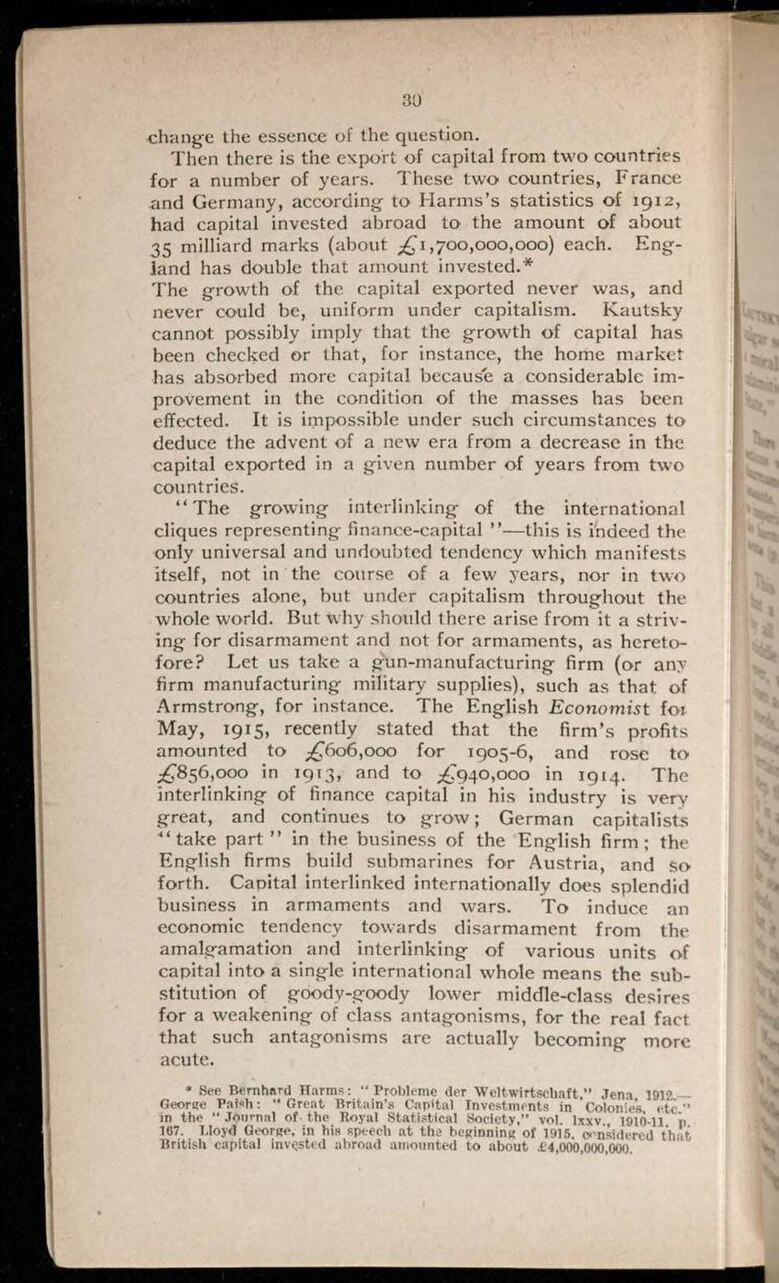30
change the essence of the question.
Then there is the export of capital from two countries for a number of years. These two countries, France and Germany, according to Harms's statistics of 1912, had capital invested abroad to the amount of about 35 milliard marks (about £1,700,000,000) each. England has double that amount invested.[1]
The growth of the capital exported never was, and never could be, uniform under capitalism. Kautsky cannot possibly imply that the growth of capital has been checked or that, for instance, the home market has absorbed more capital because a considerable improvement in the condition of the masses has been effected. It is impossible under such circumstances to deduce the advent of a new era from a decrease in the capital exported in a given number of years from two countries.
"The growing interlinking of the international cliques representing finance-capital"—this is indeed the only universal and undoubted tendency which manifests itself, not in the course of a few years, nor in two countries alone, but under capitalism throughout the whole world. But why should there arise from it a striving for disarmament and not for armaments, as heretofore? Let us take a gun-manufacturing firm (or any firm manufacturing military supplies), such as that of Armstrong, for instance. The English Economist for May, 1915, recently stated that the firm's profits amounted to £606,000 for 1905–6, and rose to £856,000 in 1913, and to £940,000 in 1914. The interlinking of finance capital in his industry is very great, and continues to grow; German capitalists "take part" in the business of the English firm; the English firms build submarines for Austria, and so forth. Capital interlinked internationally does splendid business in armaments and wars. To induce an economic tendency towards disarmament from the amalgamation and interlinking of various units of capital into a single international whole means the substitution of goody-goody lower middle-class desires for a weakening of class antagonisms, for the real fact that such antagonisms are actually becoming more acute.
- ↑ See Bernhard Harms: "Probleme der Weltwirtschaft," Jena 1912—George Paish: "Great Britain's Capital Investments in Colonies etc." in the "Journal of the Royal Statistical Society," vol. lxxv 1910–11 p. 107. Lloyd George, in his speech at the beginning of 1915, considered that British capital invested abroad amounted to about £4,000,000,000.
